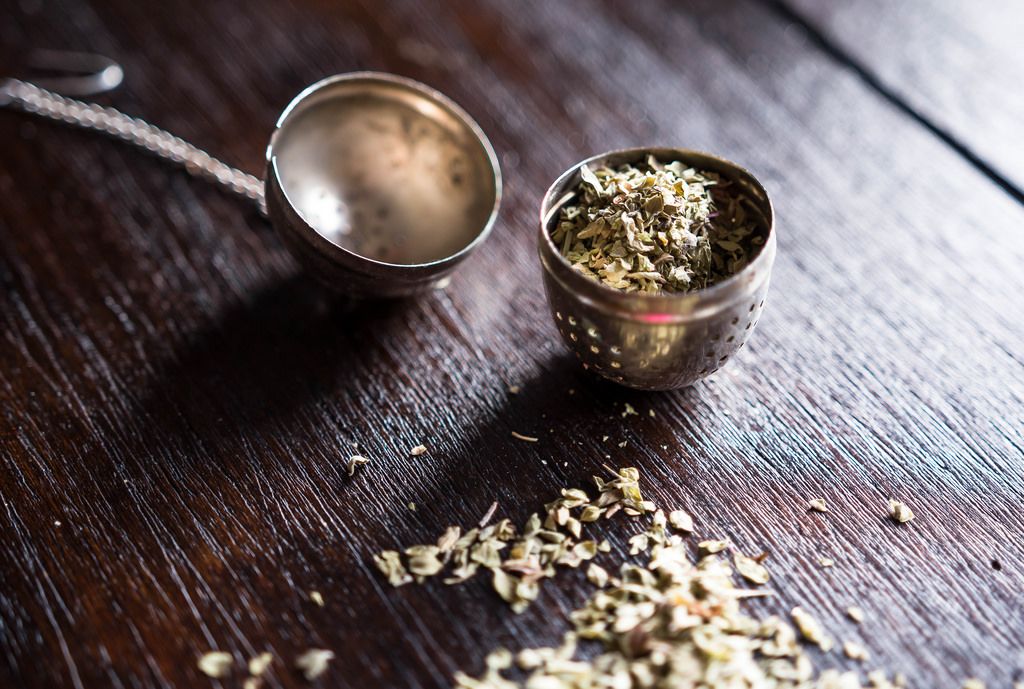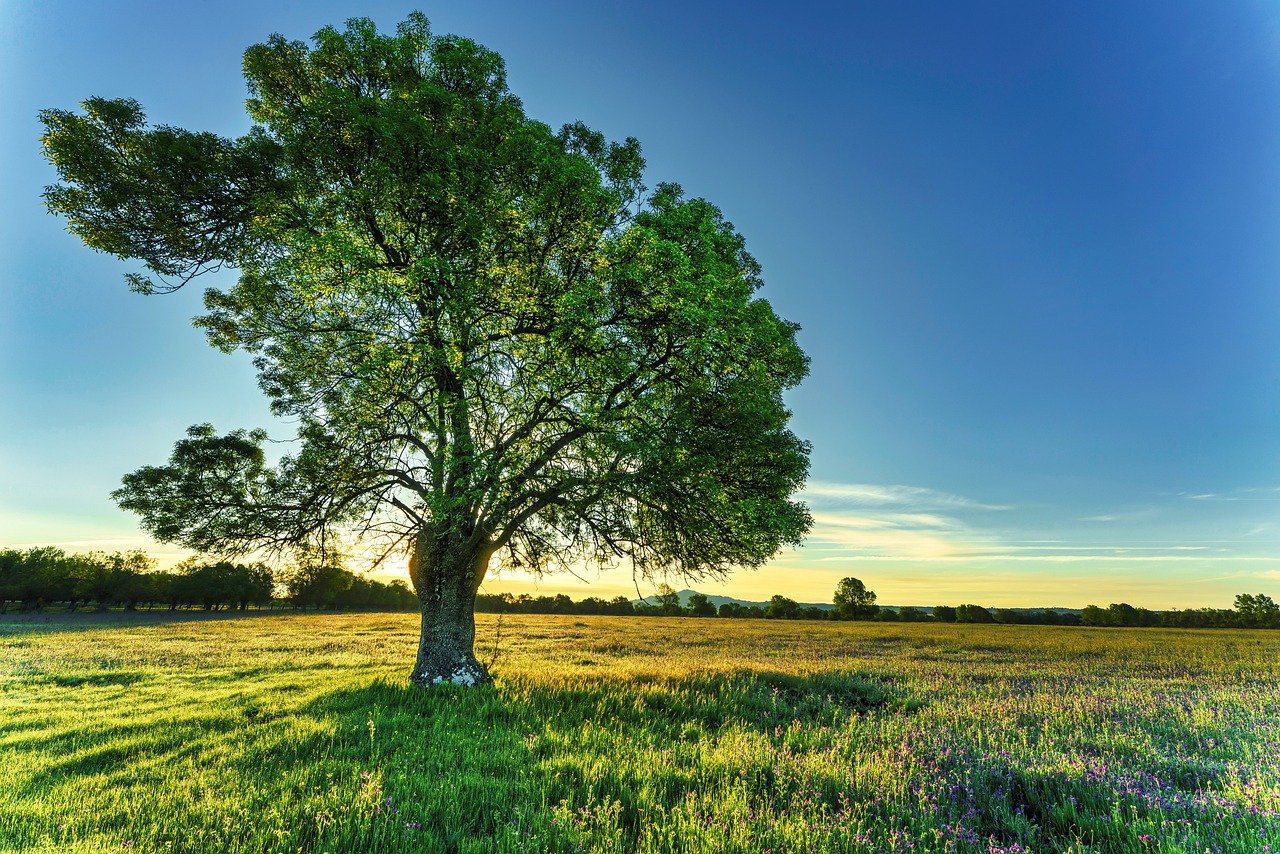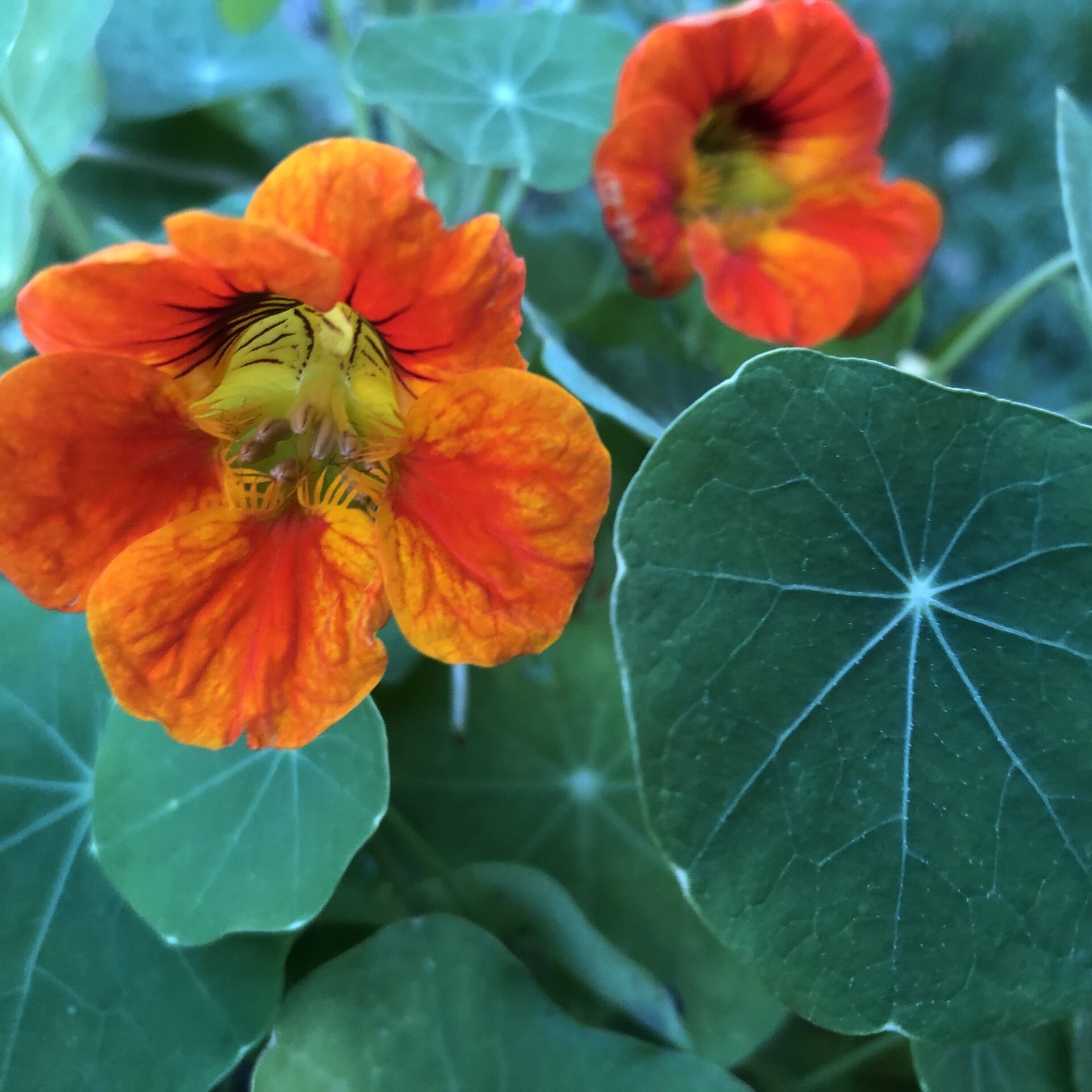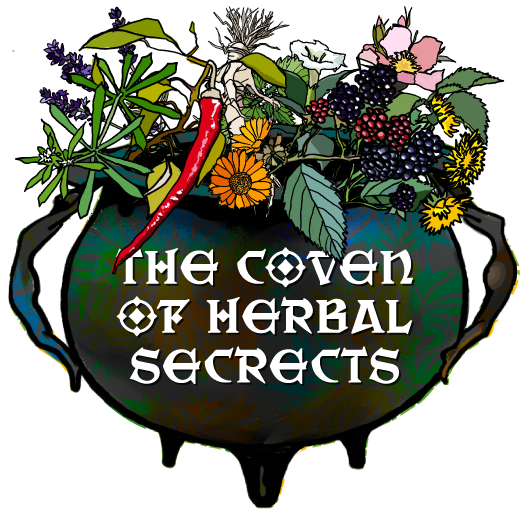Top Tips for Menopausal Symptoms
You wake up in the middle of the night uncontrollably sweating from a sudden and severe hot flash. Whatever you had on is drenched and after the blazing heat subsides, you’re left in shivers and awake from the traumatising biological alarm clock. The worst of it is, this is normal. This is a normal occurrence for you and this is a normal occurrence for many trudging through the roller coaster that is menopause. And we’re here to give you a tip or two about what you can do to combat these symptoms, and some herbs for menopausal symptoms that can support your body through these tumultuous times.
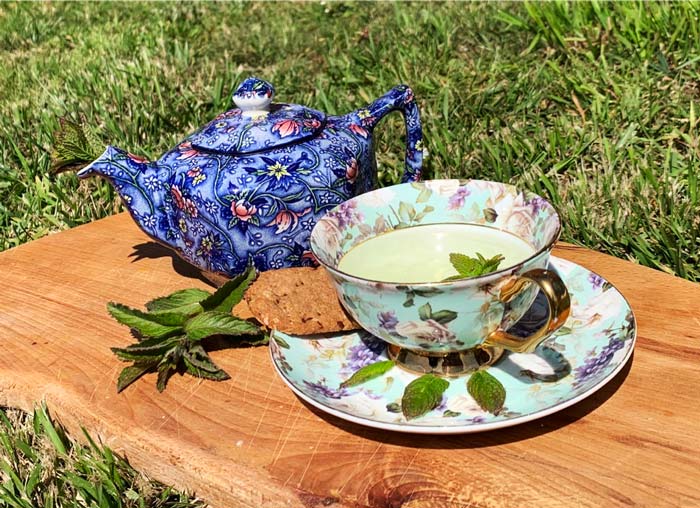
1. Coping with hot flushes
During menopause, as mentioned, the overarching nemesis can be the debilitating hot flashes. The unpredictability is just as terrible as the flare of heat that prompts an onslaught of sweat that leaves you feeling exhausted and chilled. These waves are a product of the hypothalamus which is the temperature regulator of the body. Due to the shift in hormones, the manager of this thermostat decides to set it a lot lower than the norm and the result is hot flashes in order to cool the body down. It seems ridiculous, we know. Even more ridiculous (but effective) is the quickest and easiest solution of a small portable fan with a nice little water sprayer to be used at your own will, you could add essential oils of lavender and mint into the water for extra support.
Here, we will share some herbs that may help with the intensity and frequency of flashes, but in terms of tackling the heat when it arises, a personal fan will do some good. If you are able to control the room temp then power to you! Set it low and put on some layers. When the flames start to rise, the layers can come off and the cool air will feel amazing! If you don’t have control, the fan will be your new best friend. Maybe grab a couple for your desk! 🙂 Another quick tip for night-time sweats is to put a cold pack under your pillow and a change of PJs by your bedside. When you are awoken by the heat, flip the pillow!
2. Dealing with Stress

Coming in for a slick second place, we have stress. It’s easy to wrap all the symptoms up in a package and hand you – madness. Maybe you don’t go totally insane, but close. The thing is, when oestrogen production drops off from the ovaries in menopause, the adrenal glands take over. And do we all know what the adrenal glands do? Help to provide the chemicals needed during the stress response. So at a time of life when maybe we’d like to be doing a bit less work, or worrying about the kids a bit less, we find we are still working maybe even in our prime of work, still parenting, possibly grown children and generally not having slowed down at all. Maybe historically, our body’s would have appreciated slowing at this time, but not nowadays. The adrenal glands are under more strain than usual with from external stresses and from the physical responses of menopause.
Stress has a chemically and physically degrading effect on the body and the mind and can cause daily downward spirals. External and internal stress factors cause an increase in cortisol and this increase can cause (to name a few) depression/anxiety, headaches, GI issues, an increase in blood pressure and heart rate and over the long term, an increased risk for heart disease.
3. Practice your breathing
Now, many of you are tired of the monotonous plea to practice breathing, but we have to say – it helps. The deep breathes are the best even though some days we don’t have many left. Deep breathing invites much more oxygen into the blood and to the brain. It also slows the heart rate which down regulates your body. Leaving your mind feeling as though it has just had a nice massage. Our favourite, quick exercise is doing 10 counted breaths – inhaling for 4-5 seconds, holding for 4-5 seconds, then exhaling for 4-5 seconds. This simple technique can lower cortisol levels and expel reactivity to irritable symptoms. If you’d like to take it a step further, we love a good meditation for 5-10 minutes in the morning. It’s an amazing practice for the big game of breathing throughout the day and clears the mental slate before strapping in for the ride.
4. Get hydrating!

Now for a big one – Hydrate hydrate hydrate! Those hot flashes are notorious for causing dehydration and hydration can also help with other symptoms such as vaginal dryness. A decline in oestrogen (culprit on so many levels) can cause your tissue to become thinner and more irritated/dry. Water will do wonders for this as well as improving the digestive bloating that may occur from this hormonal shift. Keep a large water bottle next to you at all times to make drinking an effortless act. We love adding a little lemon or lime to our water and even a little sea salt for an electrolyte hit.
While you’re chugging water all day, your blood sugar would be very pleased if you decided to munch throughout the day as well. Light snacks high in Omega 3s and healthy fats will keep your blood sugar stable for longer and the intensity/frequency of your mood swings at bay! Steer clear of processed foods and added sugars that can cause your blood sugar to surge and consequently rapidly drop. High blood sugar and insulin resistance have been linked to higher incidences of hot flashes. Some suggestions for healthy snacks include fruits, nuts and full fat yogurt. Nuts are full of healthy fats that will keep your brain happy and eating a yogurt right before bed (yes we said it) will hold your blood sugar at a good level through most of the night. This is a hopeful way to combat any deep night symptoms!
5. Share experiences
Our last tip and sometimes the most effective one is to find a friend. Find someone that is going through the same drudgery as you and spill! Sharing experiences with someone who is on the same page as you is a very relieving way to reduce stress and find some solace in the darkness. While you’re at it, have a good cry. Crying and talking are both ways to detoxify built-up emotion – not making it to the finish line of an emotion will allow for them to pile high causing more stress. Just let it all hang out – we’re here for you!
Herbs for Menopausal Symptoms
These tips have a high rate of success, but many of us just need some outside support. Let’s chat herbal allies. Three herbal action categories that are supremely helpful during menopause are adaptogens, nervines and phytoestrogen containing herbs. Adaptogens are herbs that help us adapt to stressors around us and in us. Herbs that fall into the group called nervines are those that have an effect on our nervous system. And phytoestrogen containing herbs are herbs that mimic our very own, self-made hormone, oestrogen…fancy that!
Adaptogenic Herbs
The idea of using tonic remedies to restore balance and health in a person is an ancient idea. The word and concept of an “adaptogen” is a relatively new way of describing a type of remedy commonly found in traditional Chinese (qi and kidney yang tonics), Tibetan, Ayurvedic (Rasayanas), and Native American medicine.
The actual word adaptogen was first used by a Soviet scientist, Dr. Nikolai Lazarev, who under grants from the military, was researching substances which produced a “state of nonspecific resistance”. The idea was to find ways to enhance the productivity and performance of soldiers, athletes, and workers without using dangerous stimulants.
Adaptogenic Herbs are used to improve the health of your adrenal system; the system that’s in charge of managing your body’s hormonal response to stress. They help strengthen the body’s response to stress and enhance its ability to cope with anxiety and fatigue. They’re called adaptogens because of their unique ability to “adapt” their function according to your body’s specific needs.
ASWAGANDA
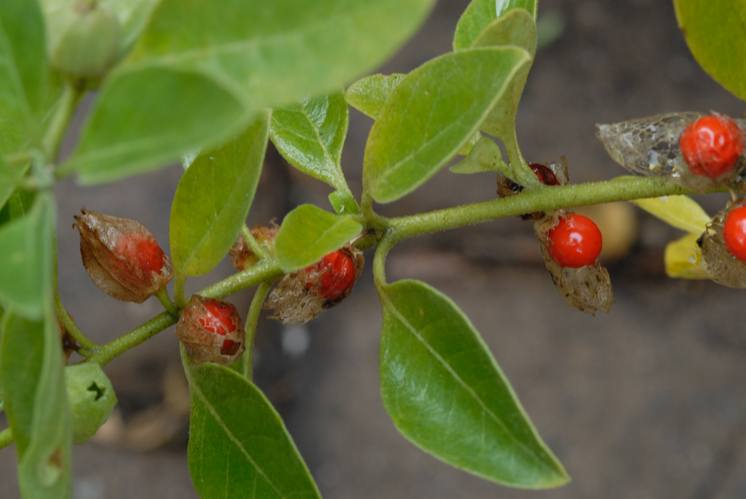
To kick off with our adaptogen loves, let’s dive into Ashwagandha root. An Indian native plant, part of the Solanacea family, we have been cultivating in our gardens a beautiful shrub that produces cherry like berries. It is the root we turn into medicine.
Ashwagandha (Withania somnifera) root is an incredible aid for those that feel “wired and tired,” stressed throughout the day, and awake and anxiety ridden at the end of the day when all you want to do is sleep. Long known as a sexual tonic, Ashwagandha can return a sense of vitality and drive to your days. It can be used as a wonderful sleep aid for the evening, so it may be a good idea to give a dose a whirl starting at night to see how your body reacts. Some feel sedated, and others can take it for excess anxiety throughout the day. All bodies are different! Try some Ashwagandha powder mixed in with some milk before the bed. Both will help regulate blood glucose levels.
MACA
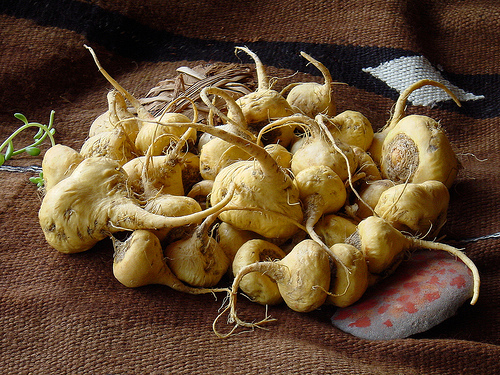
For our second mighty adaptogen, we give you the much famed Maca. Maca root has long since been used as a superfood and is massively helpful in supporting a balanced transition through menopause. This plant is known as Peruvian ginseng and originates from the Andes where the plant grows at high altitudes.
We haven’t ever tried to grow this one – any top tips from you growers out there would be greatly appreciated!
This root nourishes the adrenal gland which is where hormones are produced to regulate your metabolism, immune system, blood pressure and response to stress. This is also where oestrogen is produced! Maca root is a superstar as one of the herbs for menopausal symptoms when it comes to combating adrenal fatigue and restoring balance. The root itself tastes a bit nutty and is excellent in smoothies. It is imported so make sure you are purchasing an ethically sourced, sustainable product of you decide to try out this one.
BORAGE
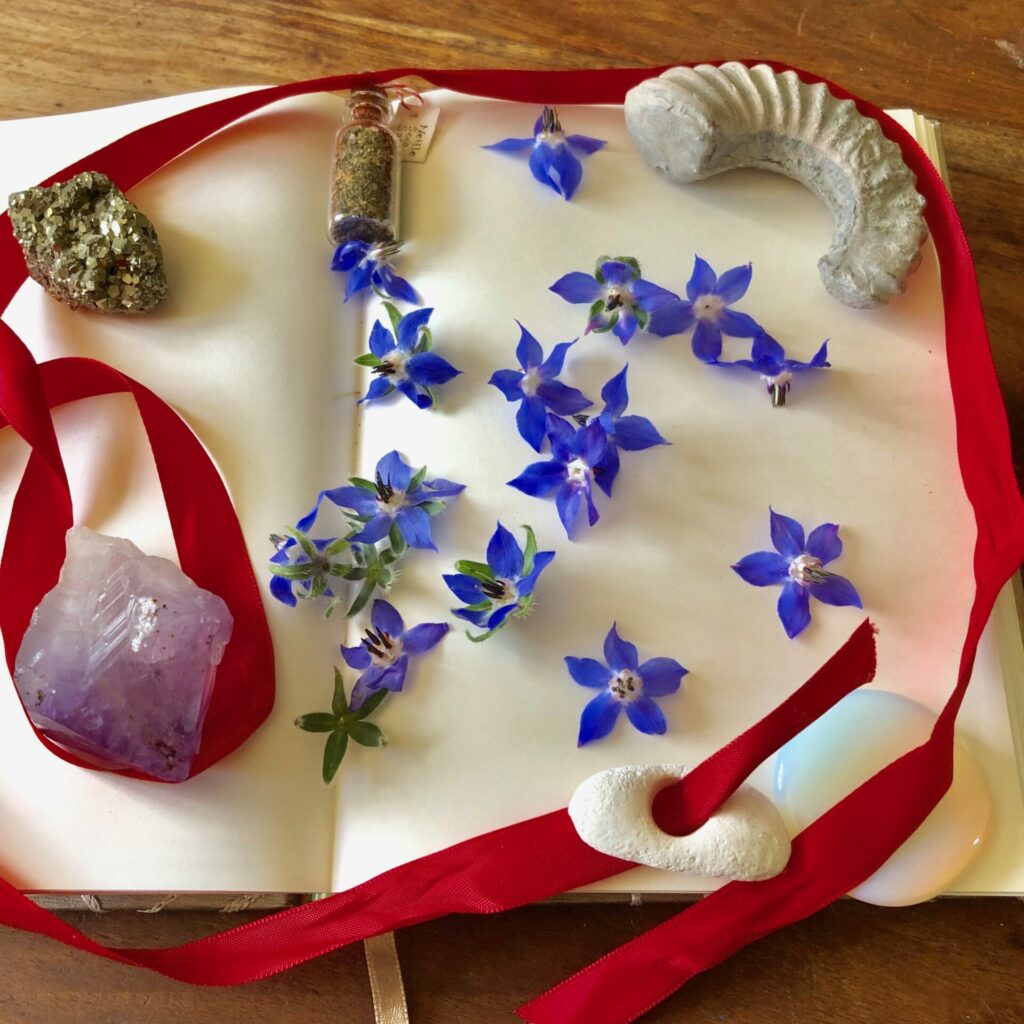
So, we’ve been around the globe and will end the adaptogens in our very own garden here in the UK. Our dear friend Borage is a one of the most common herbs for menopausal symptoms.
We class Borage is an adaptogen. This prolific purple star flower plant bring courage and joy to the garden and provides much needed food for the bees.
The best known adaptogens are exotic and expensive herbs we love that there are a very good ones like Borage, but also Sage and Rosemary who grows perfectly in UK gardens.
Nervines
PASSIONFLOWER
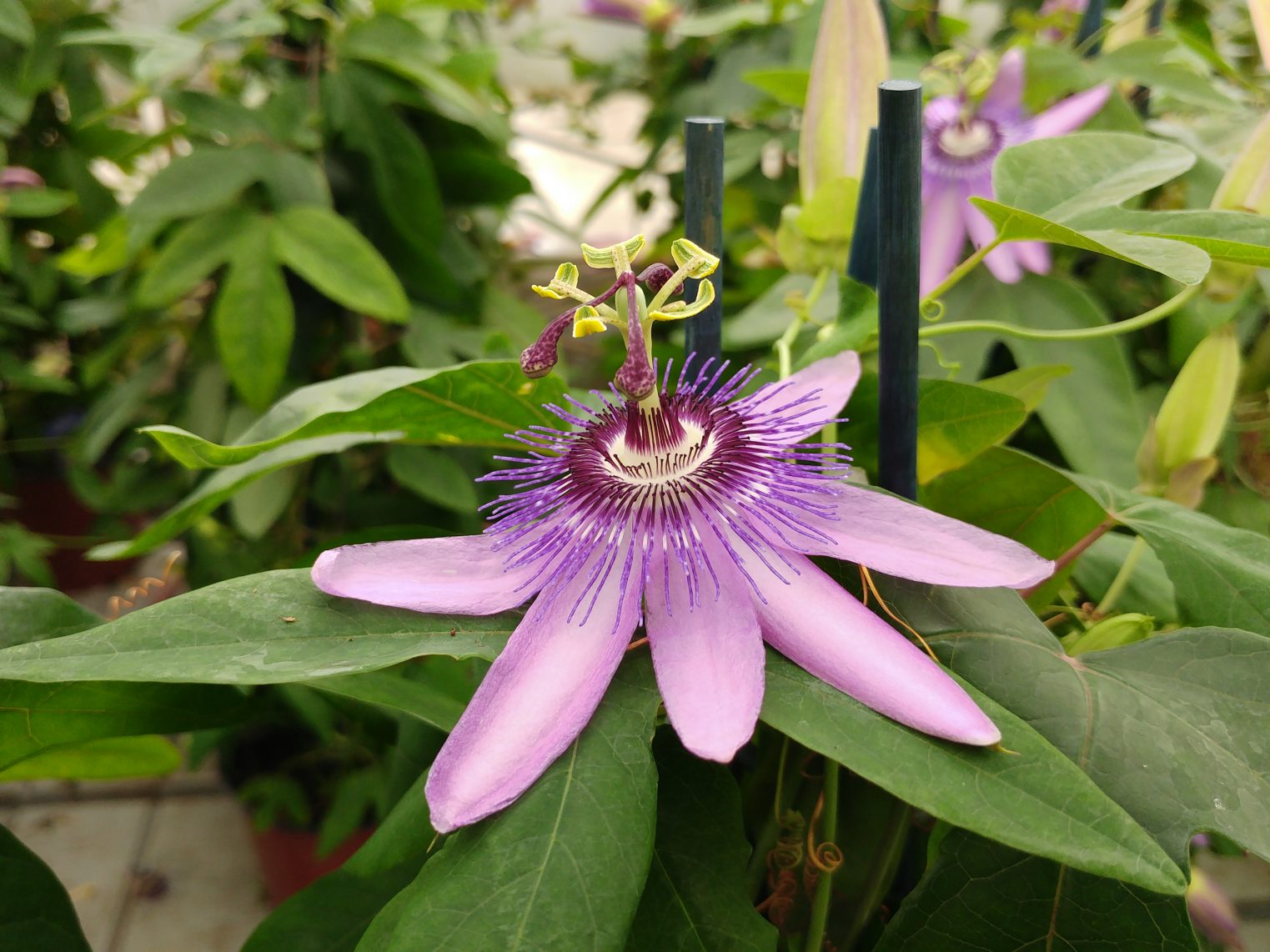
On to nervines. Starting with our beautiful, exotic Passiflora incarnata – Passionflower. Cooling and drying, the aerial parts of passionflower are a wonderful sedative cup of tea before bedtime. If you’re someone that lays awake at night with racing, repetitive thoughts, this tea is for you. Also known as an antidepressant and anxiolytic, passionflower tincture has been researched to be comparable to some anxiety medications.
VERVAIN
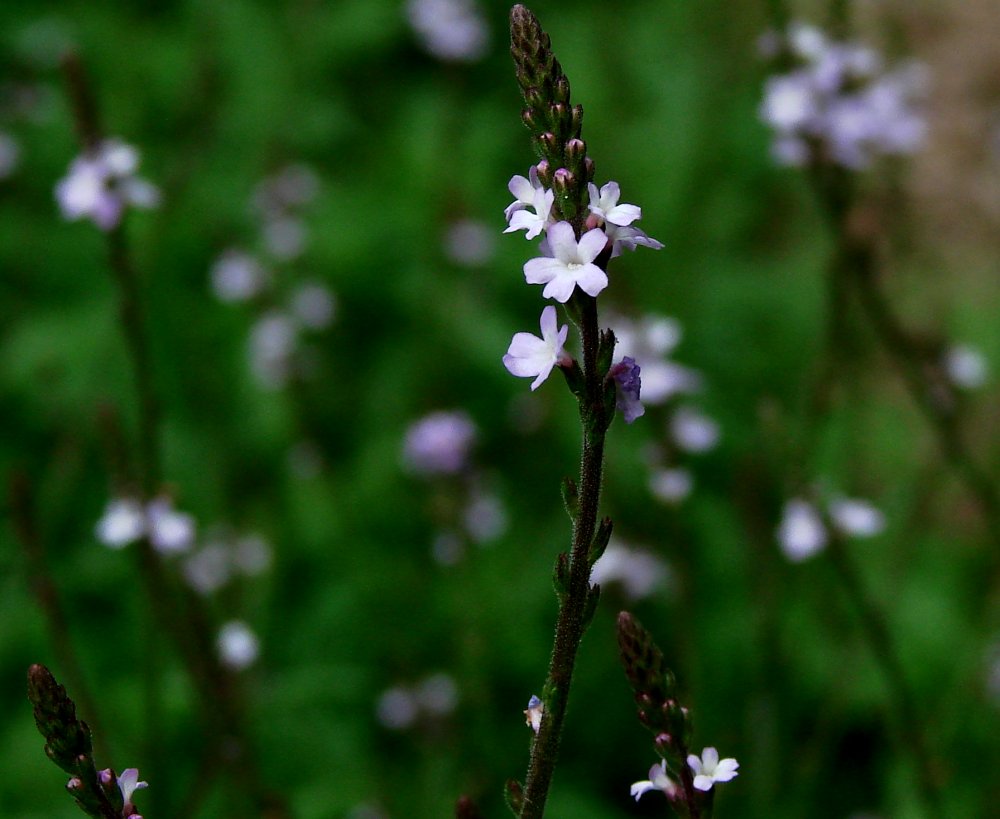
Found in sunny pastures, Vervain is a gentle trophorestorative or relaxing nervine tonic. It’s easy to become strung out when dealing with your day to day as well as the relentless menopausal symptoms. Vervain tea or tincture can bring you softly down from that overdrive and help with any headaches that have arisen in the meantime. Although not a powerful sedative, Vervain is great for relaxing the nervous and musculoskeletal systems. We use this cooling herb in our Maximum Chill Drops and find it to be just the thing to use when all we want to do is chill out.
MOTHERWORT
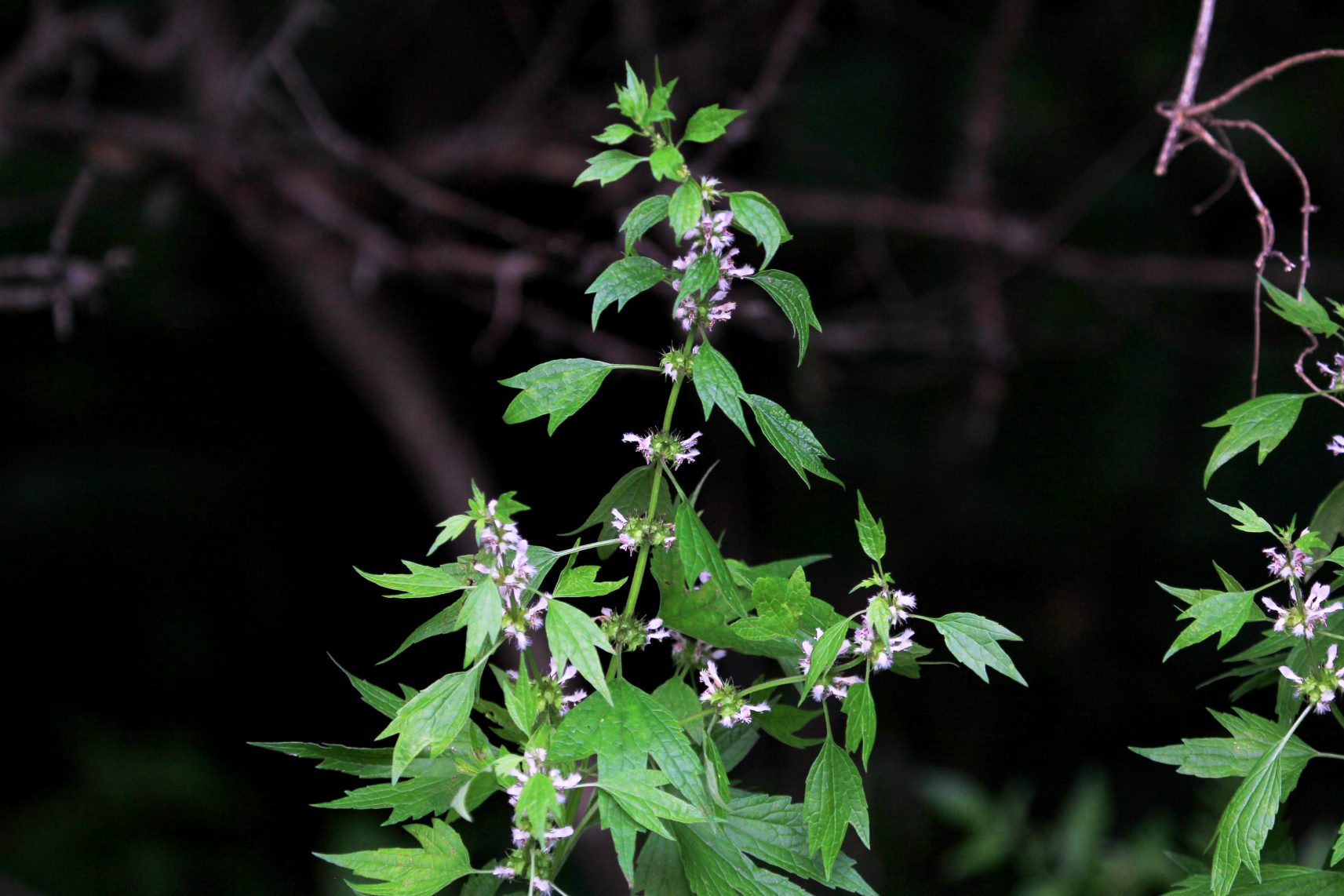
Motherwort is our last nervine suggestion and one close to all hearts. A well-known cardiovascular herb, Motherwort is used to normalise heart rhythm – gently slowing rapid heart rate and decreasing blood pressure that may be understandably through the roof. Using the aerial parts in an infusion or tincture can help alleviate hot flashes (huzzah!) and relieve anxiety and irritability. Like a mother would, it strengthens the heart muscle, and eases high stress coupled with insomnia. Heart medication and Motherwort do not bode well together so please use caution.
Due to the phytoestrogen component which acts very similar to oestrogen, it has the ability to level out the oestrogen levels that are lower due to menopause. It is the gold that will reduce the frequency and severity of those frustrating hot flashes. The levelling out of oestrogen levels will also lend a hand to decreasing mood swings and sleep problems. Take in infusion or tincture form as one of the herbs for menopausal symptoms!
RED CLOVER
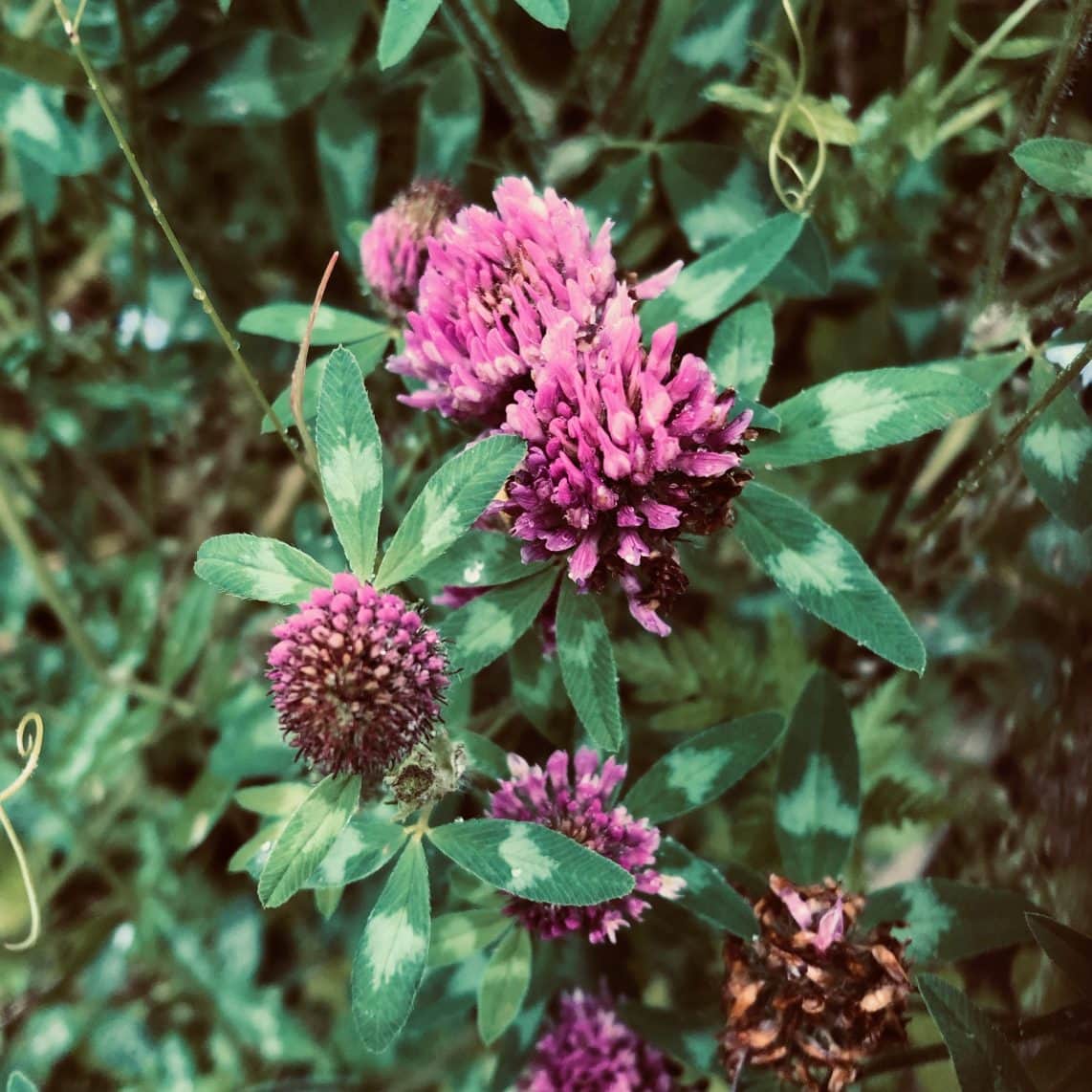
The last of our herbs for menopausal symptoms contains phytoestrogens and also dually performs as an alterative. Red clover, Trifolium pratense, is such a beautiful herb and lovely in tea. Seen in many meadows and a sweet treat for the bunnies of the region, Red Clover is great when wanting to clear our metabolic waste over time. Containing the prized phytoestrogen, it regulates hormones and we recommend going full spectrum with this one – Enjoying the aerial parts in their entirety (rather than isolated phytoestrogen isoflavones) will provide your body with the nutritive constituents as well as the co-acting constituents needed to receive its benefits in full.
Medicinal Mushroom
Confusion, muddled thoughts and general brain fog can be debilitating during during the transition and one medicinal mushroom that is coming up trumps in tons of research is Lion’s Mane. One study discovered that this mighty mushroom significantly decreased loss of concentration, irritability and heart palpitations in menopausal women. – We have seen incredible results with this powerful and beautiful medicinal mushroom and have it our shop if you would like to try some yourself. Organic Lions Mane £21
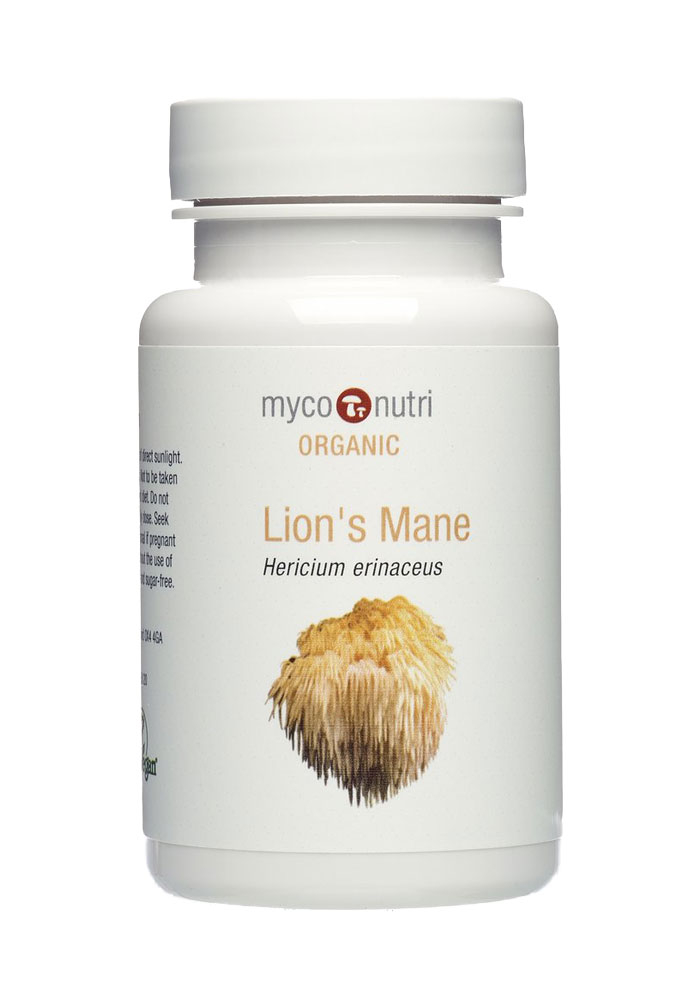
Wrapping up on our top tips for Menopausal symptoms
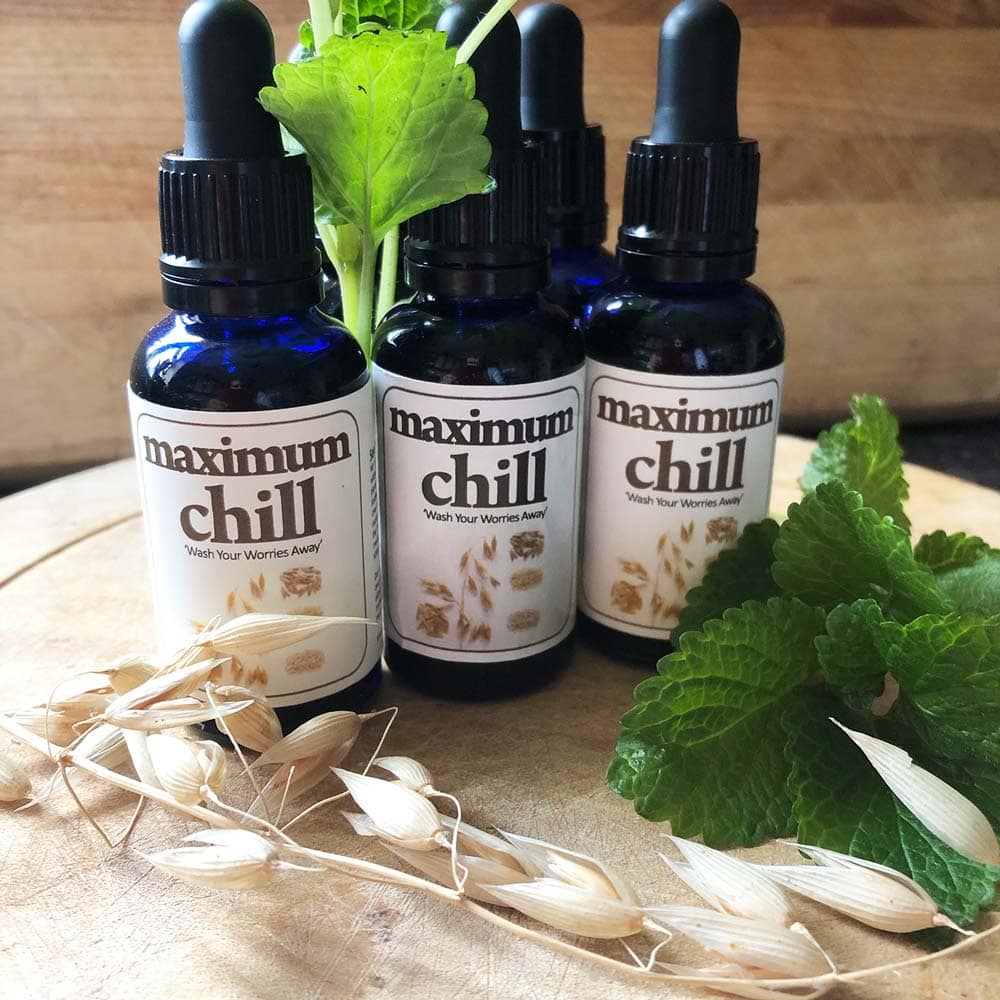
Tips for helping combat menopausal symptoms:
- Control your temperature (light layers)
- Snack often
- Find a friend to hang out with
- Create an exercise routine
- Hydrate, hydrate, hydrate
- Reduce stress (mediation, mindfulness, movement)
Favourite herbal actions to support the body during menopause:
- Adaptogenic (adrenal support) – improving overall response to stress
- Nervine support – relaxing and nourishing the nerves
- Phytoestrogen provision – gentle herbal hormonal support
Don’t stop reading yet…..!
 If you’re keen to maintain a healthy relationship with yourself but not sure of what you need for relaxing and finding peace, sign up for our Pathway to Peace online course. Delve into plant magic, unearth skills, and develop tools for keeping calm and nervous system nourishment.
If you’re keen to maintain a healthy relationship with yourself but not sure of what you need for relaxing and finding peace, sign up for our Pathway to Peace online course. Delve into plant magic, unearth skills, and develop tools for keeping calm and nervous system nourishment.
When you join the course, your journey of walking through 7 steps gives you instant access to:
💚 7 herbs
💚 7 musical guided mediations
💚 7 self-care tasks with beautiful PDF downloads
💚 Films
💚 Audios
💚 Webinar
💚 Access for a whole year to really embed the lessons!



